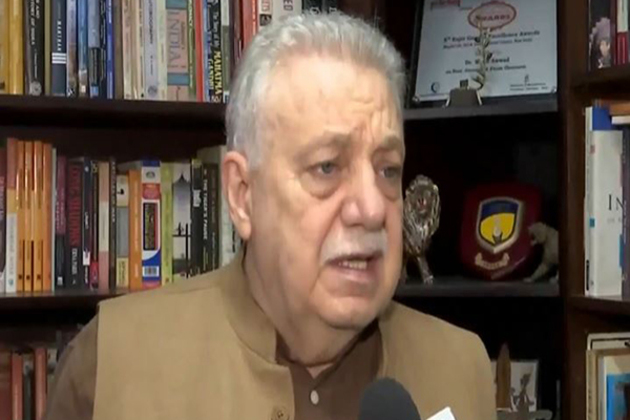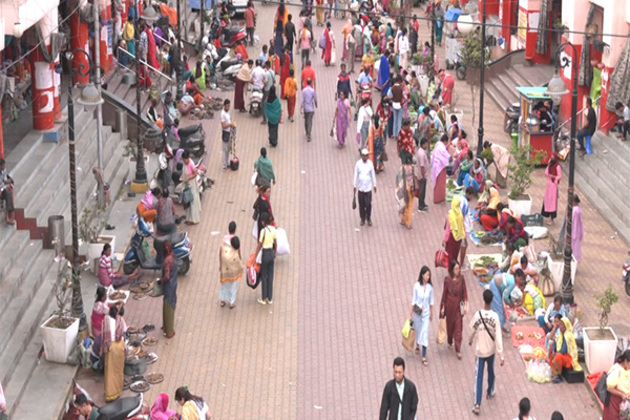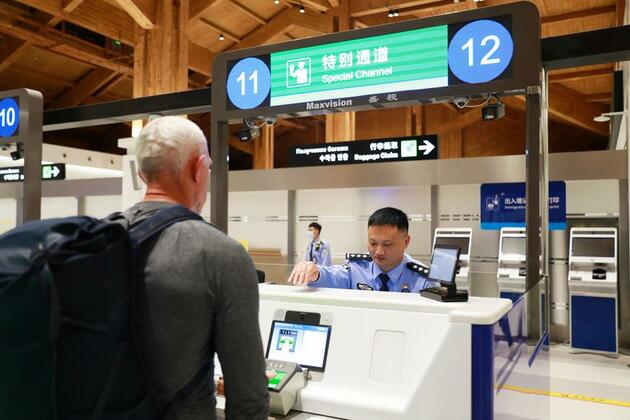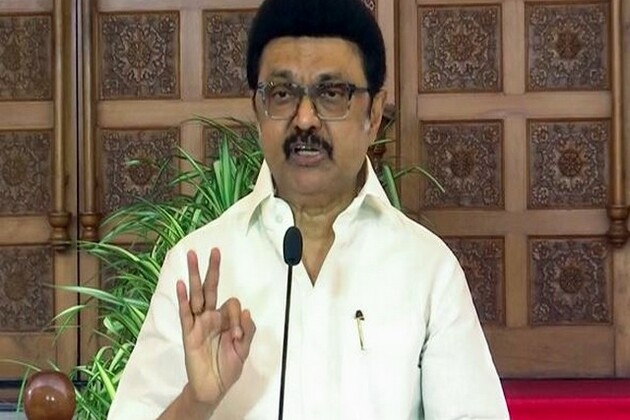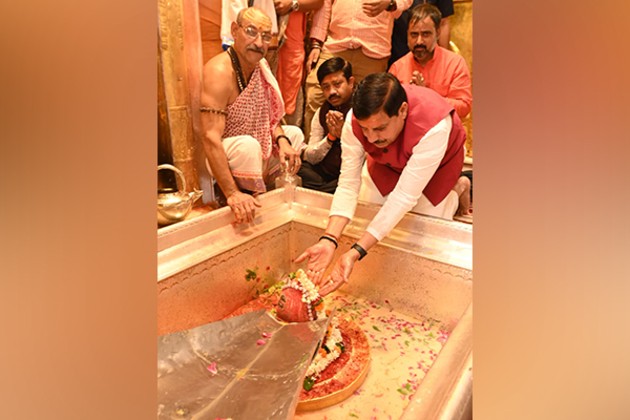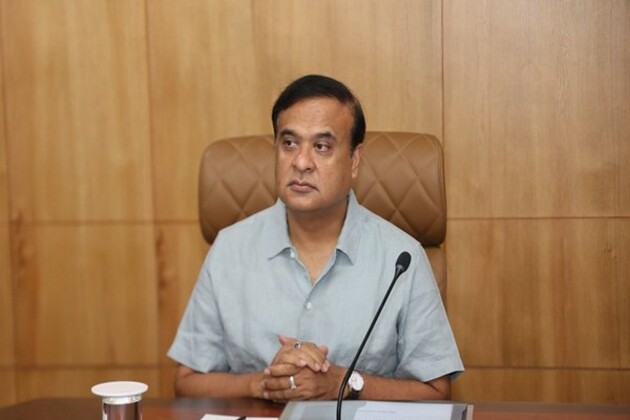Lao News Consumers Spurn Censored State Media to Look Online, Abroad
RFA
14 Aug 2020, 03:12 GMT+10
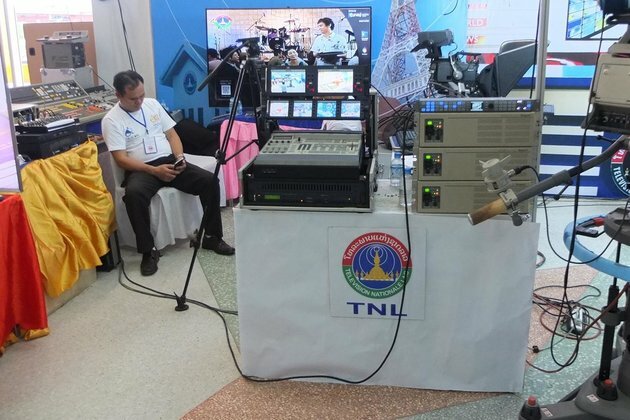
Laos state media celebrated their 70th anniversary on Thursday, but ordinary citizens say they tune out the slow and censored "voice of the Communist Party, the State and the People of Laos" in favor of social media and foreign broadcasts.
Domestic news in Laos suffers from a lack of current content, extensive censorship and a heavy pro-government bias, citizens in several parts of Laos told RFA in interviews for the 70th Lao Media and Publication Day.
"Most of us follow news on YouTube, Facebook and Thai TV," a resident of Pakse city in Champassak province, in the country's southwest, told RFA's Lao Service Tuesday.
Media in neighboring Thailand, an authoritarian country that remains more free than one-party Laos, have a wide audience in Laos, in part because the countries' languages are closely related and mutually intelligible to most speakers.
Thai broadcasts are more popular than Laos' because they are more detailed, present a variety of viewpoints, more interesting to watch, and easily accessible online, said the source, who requested anonymity for security reasons.
Another Lao citizen, who declined to be named, echoed this sentiment, telling RFA, "We have Lao TV but we don't watch it. We watch Thai TV."
A resident of the capital Vientiane, who requested anonymity for legal reasons, told RFA that it is state media's inability to report news quickly that makes alternatives popular.
"Lao state media is slow and not up to date. I hear news from other people first before I hear it from the official media," the Vientiane resident said.
"Furthermore, reports from state media are censored. If those in the upper ranks do not agree with the content, the report will not be published," the resident added.
Decree No. 327
The Lao constitution guarantees freedom of the press, but in practice the government controls nearly all print and broadcast news, and in 2014 the country enacted a draconian law banning on-line criticism of the state.
Decree No. 327 imposes criminal charges for publishing "untrue information" about policies of the ruling Lao People's Revolutionary Party or the Lao government for the purpose of "undermining ... the country."
Rights groups have criticized the law, with Amnesty International saying in a 2019 report that it is "inconsistent with the right to freedom of expression."
In 2017, three Lao workers were given prison terms ranging from 12 to 20 years in a secret trial for criticizing their government in Facebook postings while working in Thailand.
A Lao government spokesman defended the law to state media last week, saying that social media sites like YouTube often publish fake news that slanders the government. Official media have a responsibility to publish the truth to the public, Chaleun Yerpaoher, the minister of the Prime Minister's office, said.
A resident of the city of Luang Prabang, who requested anonymity to speak freely, told RFA, "Stories on Facebook are sometimes fake and are often unclear, so I watch Lao Star TV, which broadcasts more accurate news."
Lao Star TV refers to itself as the country's "first private channel," but a 2019 BBC media profile of Laos classified it as "commercial, state-owned."
One-sided coverage
Traditional state-controlled media outlets are now using social media to get their message out, according to the senior editor of Lao National TV's news service.
"We are adjusting the way we work to fit into the new era," the editor, who requested anonymity for professional reasons, told RFA Wednesday.
"Before, the way we worked was of course was not modern, but now we have come to realize that not many people watch TV because it is so slow," the editor added.
"So, we have turned to social media sites like Facebook and YouTube to publish our news and information. Many people have smart phones now. However, we still [broadcast on] TV because TV is the most reliable source of news and stories," the editor said.
Even if traditional media modernize, freedom of the press is nonexistent in Laos, according to Phil Robertson, Deputy Asia Director at New York-based Human Rights Watch.
"The Lao government is authoritarian and has for a long time severely violated human rights. It has never honored democracy nor has it ever respected freedom of the press, including television, newspapers and radio, and it has never respected the opinions of its people," Robertson told RFA.
The one-sided nature of Lao state media is standing in the way of quality programming, according to a professor at Luang Prabang city's Souphanouvong University.
"Lao people are afraid to freely express themselves," the professor, who requested anonymity for security reasons, told RFA.
"State media shouldn't publish only the views and the orders of the government. It should present differing opinions in various forms," the professor said.
"The media should be the voice of the people, and the people should have rights and freedoms. This is the way to make Lao media more interesting," the professor added.
In an annual survey of press freedom released in April, Laos was ranked 172 out of 180 countries by Paris-based Reporters Without Borders (RSF), which said the ruling Lao People's Revolutionary Party "exercises total control over the media."
Reported by RFA's Lao Service. Translated by Max Avary. Written in English by Eugene Whong.
Copyright © 1998-2018, RFA. Published with the permission of Radio Free Asia, 2025 M St. NW, Suite 300, Washington DC 20036
 Share
Share
 Tweet
Tweet
 Share
Share
 Flip
Flip
 Email
Email
Watch latest videos
Subscribe and Follow
Get a daily dose of International Technology news through our daily email, its complimentary and keeps you fully up to date with world and business news as well.
News RELEASES
Publish news of your business, community or sports group, personnel appointments, major event and more by submitting a news release to International Technology.
More InformationComputers
SectionRussia and Cuba to launch logistics hub in Gulf of Mexico
Moscow eyes deeper Latin American trade links via the Caribbean nations strategic port of Mariel Russia and Cuba are working to establish...
Pro Panja League co founder Parvinn Dabass shares vision at WOW awards 2025
Mumbai (Maharashtra) [India] June 23 (ANI): Pro Panja League co-founder Parvinn Dabass spoke at the WOW Awards & Convention 2025 (WOW...
China races to turn quantum computing into industrial solutions
HEFEI, June 23 (Xinhua) -- In a significant stride toward practical quantum computing, a Chinese startup has successfully deployed...
"India is natural extension of West Asia..make sure there is no widening of war": Expert Waiel Awwad on Israel-Iran conflict
New Delhi [India], June 23 (ANI): West Asia expert and veteran journalist Waiel Awwad on Monday emphasised the critical importance...
Frequent road blockades cripple economy and daily life in Manipur
Imphal (Manipur) [India], June 23 (ANI): Frequent road blockades along National Highways 2 and 37 are crippling Manipur's economy and...
Hainan free trade port moves to forefront of China's opening-up drive
HAIKOU, June 21 (Xinhua) -- For Canadian visitor Stephanie Wing See Yau, the therapy experience at a care center in Bo'ao, a coastal...
Internet
SectionTikTok gets US reprieve as Trump grants 90-day extension
WASHINGTON, D.C.: President Donald Trump has granted TikTok another reprieve, extending the deadline for its Chinese parent company,...
Nepal Police Search for Journalist Who Reported on Political Family's Business
In Nepal's latest attempt to silence online speech, police are trying to arrest a well-known journalist who published on his YouTube...
"Nothing but crocodile tears": Tamil Nadu CM slams centre for skewed funding favouring Sanskrit over classical languages
Chennai (Tamil Nadu) [India], June 24 (ANI): A political row has erupted after Tamil Nadu Chief Minister MK Stalin alleged biased allocation...
Madhya Pradesh CM Mohan Yadav offers prayers at Kashi Vishwanath temple, Kaal Bhairav temple in Varanasi
Varanasi (Uttar Pradesh) [India], June 24 (ANI): Madhya Pradesh Chief Minister Mohan Yadav offered prayers at Kashi Vishwanath Temple...
Israel Says Iran Violates Cease-Fire, Orders New Strikes
New posts Featured entry 10:14 Israel Claims Iran Violates Cease-Fire, Orders New Strikes On Tehran By RFE/RL Israeli...
Assam government to organise health camps in all constituencies
Guwahati (Assam) [India], June 24 (ANI): The Assam government has planned to organise health camps in each constituency from October...




